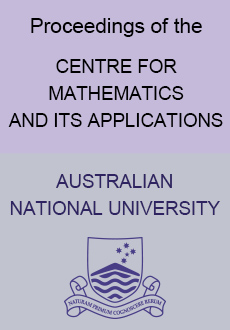Abstract
Supercooled Stefan problems describe the freezing of a liquid initially cooled below its freezing point. The liquid and solid phases are separated by a sharp interface that constitutes a moving boundary. Such problems are notoriously ill-posed and not only is a planar moving boundary unstable to small perturbations, but the problem is prone to so called finite time blow up if the degree of initial undercooling is too great. A number of modifications to the the isothermal phase change condition have been proposed in order to prevent finite time blow up. These include applying a Gibbs-Thomson condition and/or a kinetic undercooling condition at the free boundary. A survey of recent results for supercooled Stefan problems, including effects of these modifications, is presented.
Information


